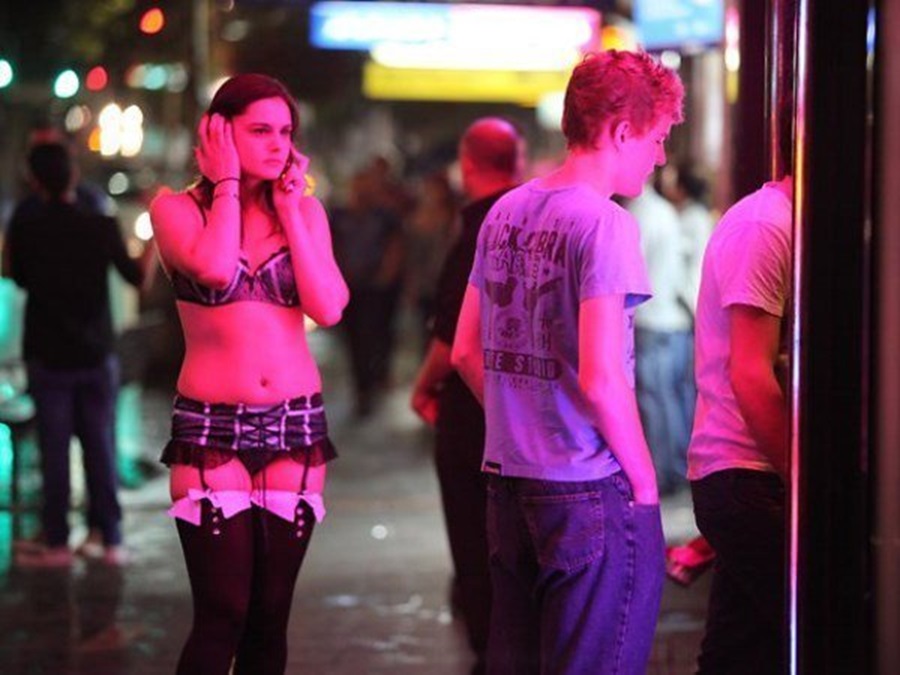Sex workers are people who consensually engage in sexual services in exchange for something like money. They offer different services related to their preferences or the agreement reached with their clientele.
According to ProjectX, sex work, often called the world’s oldest profession, has evolved into a complex industry globally. While some countries legalise it, others impose restrictions, given cultural, religious, or moral values. This article explores five countries with large networks of sex workers.
The sex work industry has existed for decades and is legal in some countries. However, there are countries where the industry is forbidden from operations, like Saudi Arabia, Iran, Nigeria, Egypt, Indonesia etc. Other countries where they are legalised or regulated are the Netherlands, Germany, New Zealand, Australia, and Switzerland, to mention a few.
Let’s examine some countries where they have sex workers in their numbers. However, note that these numbers are obtained from ASSEAN NOW.
1. China – 5 million sex workers
In China, a deep root of tradition, legal frameworks, and social patterns influence society’s attitude toward sex work. Prostitution is highly regarded as illegal, with strict restrictions put in place by the law. However, sex work was in some sort of underground establishments like nightclubs, karaoke outlets, massage hubs, etc. These establishments often acted in disguise.
Society, especially in modern China, still has an element of traditions and stigmatisation attached to it. Society has a conservative view of the profession regardless of how much their practices have evolved over the decades.
2. India – 3 million sex workers
According to Drishtiias.com (n.d.), in India, the Supreme Court recognised sex work as legal and that it could pass as a profession. It also further stated that the court passed that those who practise the profession are entitled to dignity and equal protection under the country’s laws.
In India, the police are not permitted to interfere in their business or take any criminal action against sex workers so far, they are adults, and consent is in the picture.
While it’s true that the court recognises it as a profession, society still accepts it at a very limited level because of the stigma attached to the work due to the conservative norms and religious beliefs that bind society. The Amikus Qriae reported that moral questions are raised around this profession. While it is not legal, having brothels or soliciting in public is regarded as illegal.
3. United States – 1 million sex workers
Sex workers in the US are often tossed aside or sidelined and viewed as “communities of need” as reported in AIDS United in 2023. According to the report, the country has a structure that criminalises sex work that has enabled terrible outcomes for people who patronise the sex workers and even the workers themselves.
It is majorly criminalised in the U.S., and it makes room for stigma, especially against the people who are involved in the industry. The University of California Press also affirms that women are more susceptible to sexualisation, objectification, and dehumanisation in the industry.
4. Philippines – 800,000 sex workers
Being a sex worker in the Philippines is illegal, and often stigmatised because of their cultural and religious roots. Based on an article by Wikipedia, religion-wise, they have been influenced by the church which makes sex work illegal and mostly immoral. This is because it negates the principles and the teachings of the catholic.
Therefore, whether you are a sex worker or benefiting from sex work itself, it’s illegal and punishable according to the Revised Penal Code. The crime attracts a fine or sometimes, imprisonment. However, despite this, the country still has a significant number of sex workers globally.
According to Projectx, the sex workers policy is not primarily hinged on the criminalisation of people who are involved with the industry, but the characterisation of people who supply sexual services.
5. Mexico – 500,000 sex workers
According to an article on Revista – Harvard Review of Latin America, there was a time in Mexico when sex work in public was regarded as an offence; a minor offence which either attracted an arrest or payment of fine.
However, as at 2019, sex work ceased to be regarded as a crime – it became officially and formally decriminalised in the city. This raises the question, “What is then regarded as a crime in place of sex working?” Sex trafficking and procuring which occurs when people take advantage of the prostitution of others whether it was with or without consent, are the punishable crimes in Mexico that are sexually related.
Culturally speaking, people are often stigmatised for this profession even though it has been decriminalised. They still suffer from marginalisation and have limited access to health and basic social services.
Tribune

